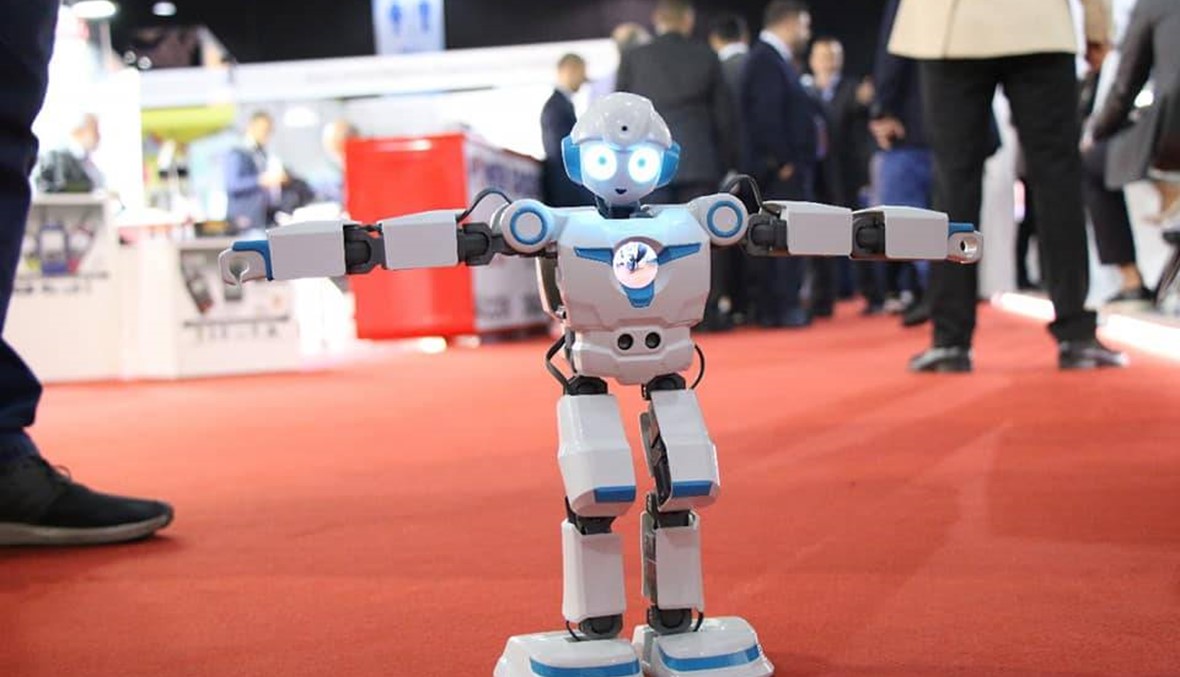

BEIRUT: Smartex, Lebanon’s flagship technology exhibition, launched its third edition on Wednesday, April 10 in Beirut’s seaside arena, with 120 exhibitors offering products and solutions that fall under the large umbrella of technology, such as cybersecurity, fintech, edutech, automation, retail tech, telecom and others.
Jason Rizk, managing director at M.I.C.E., the organizing company behind Smartex, told Annahar: “What’s special this year about Smartex is that we were able to grow and welcome international giants in telecom and tech such as Nokia, Ericson, Huawei and IDM. Each of these companies has something to say, whether it’s a product launch or a live demo of their technology.”
Also commenting on the event, Nabil Itani, chairman of IDAL, the strategic partner of Smartex, said: “Our aim of partnership in this event is to have the technology sector in Lebanon as a promising and booming sector, and we are putting all our efforts and talents to push it forward. The second one is to have Lebanon as a hub for conferences and exhibition, just as it was before the conflicts circled the region.”
The exhibitors included startups such as Fallound and the Little Engineer and Careem, as well as A-list companies such as Touch, Cisco and Alfa. The talks of the conference were as engaging as the exhibitions.
Omar el Zein, Head of Innovation at Bank Audi, commenced the techtalks about financial inclusion, the new laws adopted by the parliament regarding digitization, and the mobile wallet. “Law 81, which became a reality last year, deals with everything electronic: electronic payments, electronic money, electronic signature, electronic commerce, etc…” said Al Zein.
He added that 242 is another law, which came uot in 2012, and which states that every citizen in Lebanon is entitled by a unique ID number, and this number will be used to identify citizens in all governmental municipalities.
There’s a need to renew the Lebanese IDs in the country, as some of them have been around for 25 years, he said. Once users fill in and save their data on the digital ID, we can give the right to institutions in the banking or retail sector to fetch our data, instead of having to fill it in forms over and over again. The digital ID will increase financial inclusion and it will fight corruption, he continued.
By 2023, 88% of banking transactions will become online in countries that already have implemented digital ID. As for the mobile wallet, it’s a digital replication of the physical wallet. “As soon as you have the digital ID and you can reach all people in the country, you can perform B2B and B2C payment where you can pay a large retailer or a small shop in a village,” Al Zein said.
The next discussion was titled “Your Hybrid Cloud Made Easy” and given by Senior System Engineer at Cisco System Mohammed Al Hashimi. He said: “I can build applications and move applications around data centers, and I can do different services around various data centers such that may SaaS among other things.” He also spoke of how users are attracted to the cloud because of its agility, self-service, scalability, pay-per-use and low cost.
Moreover, Nisreen Al Khatib, ISACA Lebanon Chapter President, gave an animated talk about women in cybersecurity. “We need diversity and people from different backgrounds to enter the tech field,” she said.
She then mentioned that in 2017, the percentage of women in information security field was only 14%, adding that ISACA has identified top five barriers preventing women from entering cybersecurity: lack of mentors, lack of role models, gender bias in the workforce, unequal pay and unequal growth with men. Other reasons include children and family commitments.
Al Khatib concluded her talk with five ways that companies can encourage the engagement of women. These included considering a job in tech as exciting rather than intimidating, offering role models for women to champion and encouraging them to speak at tech conferences.
The last speaker was Hassan Hibri, president of the newly formed Syndicate of Information Technology Certified Experts in Lebanon (SITCL). He spoke of the end goals of the syndicate, which include combatting the wrongful use of IT, moving matters in the public sectors to egovernance, raising awareness about cybersecurity and implementing IT laws.
The syndicate also aims to help its members by protecting them against arbitrary job loss, offers healthcare, insurance, and retirement plans as well as a special discount in training centers.
Hibri mentioned his team’s visit to Estonia, known as “the most advanced digital society in the world,” and described how, one day, Lebanon can become “as good as Estonia” in cybersecurity. In fact, maybe even better.
The conference will resume for two more days.